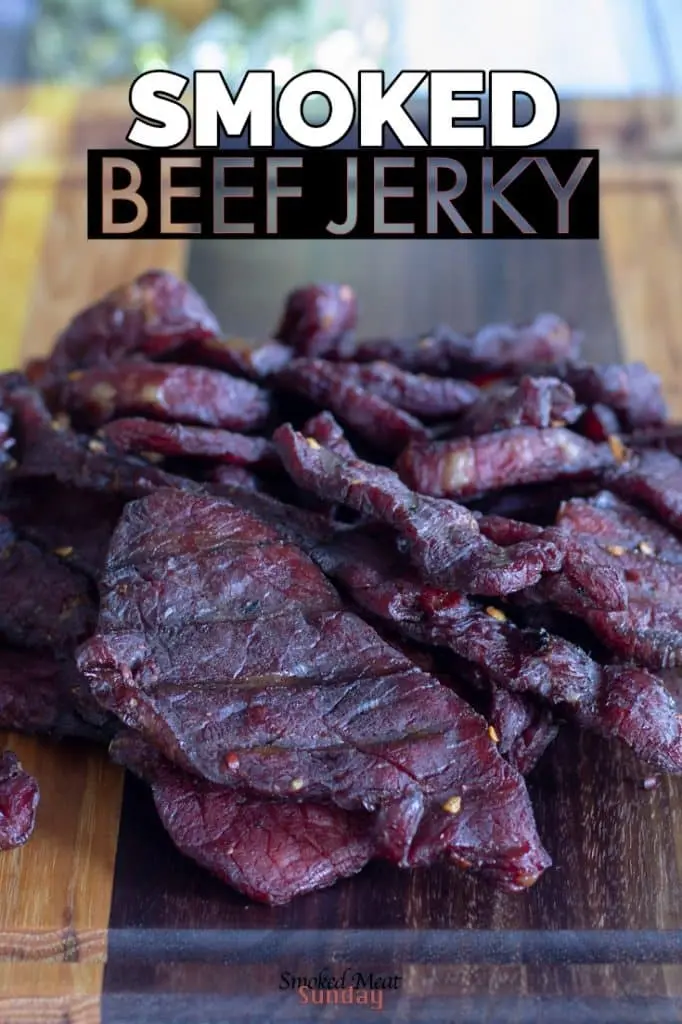Smoked jerky is a popular food item among backpackers, campers, and outdoor sports enthusiasts. It is a lightweight and dried meat product that requires no refrigeration. Smoked jerky can be made from various lean meats such as beef, pork, venison, or smoked turkey breast. However, it is important to understand how long smoked jerky can last to ensure its safety for consumption.
Preserving Homemade Jerky
When it comes to preserving homemade jerky, the drying process plays a crucial role. Proper drying ensures that the jerky is free from moisture, which can lead to the growth of harmful microorganisms. Raw meats can be contaminated with bacteria that cause illness, so it is essential to handle the meat correctly to prevent any potential health risks.
It is recommended to follow these guidelines for safe handling of meat and poultry:
- Always wash hands thoroughly with soap and running water for at least 20 seconds before and after handling raw meats.
- Use clean equipment and utensils.
- Keep meat and poultry refrigerated at 40ºF or below. Use ground beef and poultry within 2 days, red meats within 3 to 5 days, or freeze for later use.
- Thaw frozen meat in the refrigerator, not on the kitchen counter.
- Marinate meat in the refrigerator and do not save and re-use marinade.
When using pork or wild game to make jerky, it is important to treat the meat to kill the trichinella parasite before slicing and marinating. This parasite causes trichinosis, a disease that can be harmful to humans. To treat the meat, freeze a portion that is 6 inches or less thick at 0ºF or below for at least 30 days. Freezing the meat will not eliminate bacteria, so it is crucial to handle the meat properly during the entire process.
Preparing the Meat for Jerky
Before making jerky, it is important to prepare the meat properly to ensure its safety and quality. Partially freezing the meat makes slicing easier. It is recommended to slice the meat no thicker than ¼ inch. Trim and discard any fat from the meat, as it can become rancid quickly. The texture of the jerky can vary depending on how the meat is sliced. Slicing with the grain results in a chewy jerky, while slicing across the grain creates a more tender and brittle jerky.
The meat can be marinated for flavor and tenderness. A typical jerky marinade may include soy sauce, Worcestershire sauce, black pepper, garlic powder, onion powder, and hickory smoke-flavored salt. The marination time can vary, but it is generally recommended to marinate the meat for at least 1-2 hours or overnight. If desired, the meat can be heated in the marinade before drying to decrease the risk of foodborne illness.
Drying the Jerky
Once the meat has been marinated, it is time to dry it to transform it into jerky. Proper drying is crucial to remove moisture from the meat and prevent the growth of bacteria. There are two recommended methods for drying jerky:
- Dehydrator Method: Remove the meat strips from the marinade and drain them on clean, absorbent towels. Arrange the strips on dehydrator trays, ensuring they are close together but not touching or overlapping. Place the trays in a dehydrator preheated to 140ºF and dry the jerky until it cracks but does not break when bent. The drying time can range from 10 to 24 hours, depending on the thickness of the meat strips.
- Oven Method: If the meat strips were not heated in the marinade before drying, they can be heated in an oven after drying as an added safety measure. Place the strips on a baking sheet, ensuring they are close together but not touching or overlapping. Heat the strips in an oven preheated to 275ºF for approximately 10 minutes. Thicker strips may require longer heating to reach an internal temperature of 160ºF.
Once the jerky has been dried, remove any beads of oil with clean, absorbent towels and allow it to cool. Packaging the jerky in glass jars, heavy plastic food storage bags, or vacuum-sealed bags can help maintain its freshness and quality.
Storing Smoked Jerky
Properly dried smoked jerky can be stored at room temperature for 1 to 2 months. However, for the best results in terms of flavor and quality, it is recommended to refrigerate or freeze the jerky. Refrigeration or freezing can extend the shelf life of the smoked jerky and help maintain its taste and texture.
Can I use raw poultry to make smoked jerky?
It is generally not recommended to use raw poultry for making smoked jerky due to the texture and flavor of the finished product. Raw poultry can also be more prone to bacterial contamination compared to other meats.
How can I decrease the risk of foodborne illness when making jerky from wild game?
When making jerky from wild game, it is important to consider the wound location and the hunter's skill in dressing the meat. If the animal is wounded in a way that allows the contents of its gut to come in contact with the meat or the hunter's hands, fecal bacteria can contaminate the meat. It is best to avoid making jerky from this meat and use it only in thoroughly cooked dishes. Rapidly chilling deer carcasses can also help prevent bacterial growth.
Can I make jerky from ground meat?
Yes, jerky can be made from ground meat using special presses to shape the product. However, it is important to note that disease-causing microorganisms are more difficult to eliminate in ground meat compared to whole meat strips. It is crucial to follow the dehydrator manufacturer's instructions for heating the product at the end of the drying time to ensure any potential bacteria are eliminated.

How should I package smoked jerky for long-term storage?
For long-term storage of smoked jerky, it is recommended to package it in airtight containers such as glass jars, heavy plastic food storage bags, or vacuum-sealed bags. Proper packaging helps prevent moisture and air from reaching the jerky, which can extend its shelf life.
In conclusion, smoked jerky can last 1 to 2 months at room temperature when properly dried. However, for the best quality and flavor, it is advisable to refrigerate or freeze smoked jerky. Following safe handling practices and proper drying techniques can help ensure the longevity and safety of smoked jerky.
If you want to know other articles similar to How long does smoked jerky last? tips and storage you can visit the Food storage category.


Related Articles